I requested an update from the Department of Transportation and Infrastructure, Highway Safety on the latest electric vehicle statistics for Prince Edward Island, and they kindly provided a breakdown for the last six years:
| Vehicle Type | 2018 | 2019 | 2020 | 2021 | 2022 | 2023 |
|---|---|---|---|---|---|---|
| Battery Electric | 20 | 41 | 76 | 198 | 525 | 751 |
| Hybrid | 564 | 643 | 642 | 923 | 1161 | 1566 |
| Plug-in Hybrid | 16 | 27 | 54 | 100 | 177 | 311 |
| Total | 600 | 711 | 772 | 1221 | 1863 | 2628 |
| Total Vehicles | 114,188 | 122,084 | 88,634 | 100,191 | 95,082 | n/a |
| % Electric | 0.52% | 0.58% | 0.87% | 1.22% | 1.96% | n/a |
While there has been growth over these years in the proportion of total vehicles registered that are electric or hybrid (when I bought my Kia Soul EV in 2019, it alone represented 2.4% of the electric vehicle fleet on PEI, it’s now only 0.13%), it’s still a relative pittance.
Prince Edward Island’s Net Zero Framework calls for “Transition to Zero-Emission Vehicles and other Non-emitting Fuel Sources” as a key lever in the path forward to net zero by 2040, with specific goals of zero-emission vehicles accounting for 100% of light-duty dealership sales by 2035, and zero-emission vehicles accounting for greater than 60% of PEI’s registered passenger vehicles by 2040.
For $5.00, L.L. Bean in Halifax will make you shoelaces in the colour and length of your choice. It takes about 5 minutes.
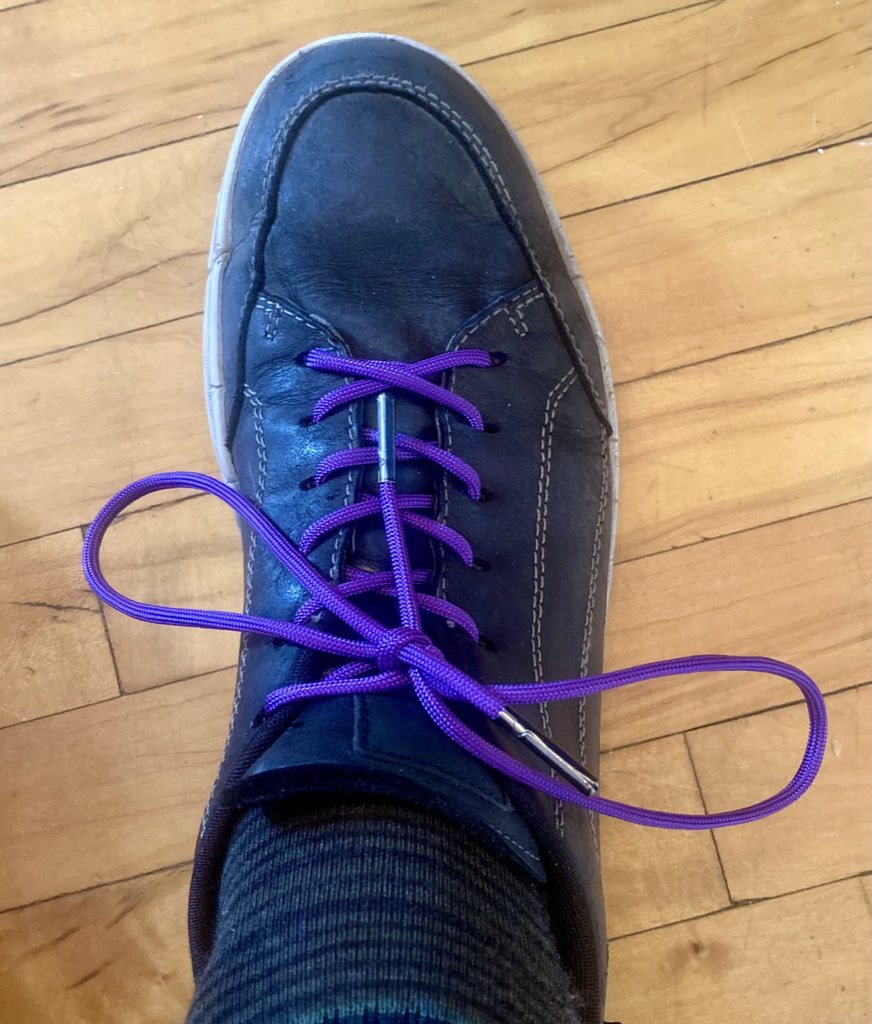
Two years ago I reported that this photo that I took in April 2017, of Clover Food Lab in Burlington, MA, had been seen on Google Maps 1.5 million times:
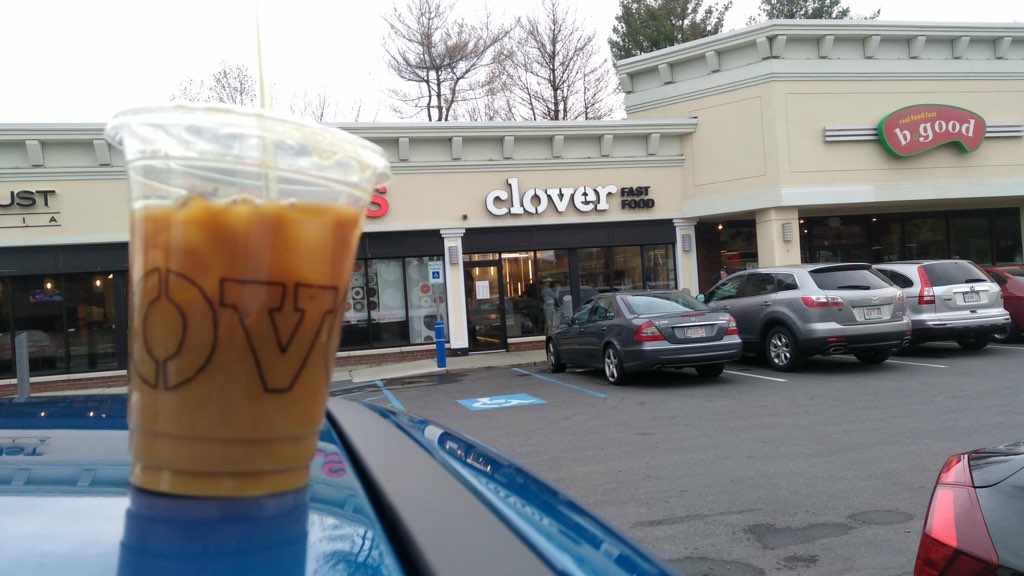
Google Maps emailed me today to tell me the count is now up to 2.3 million:
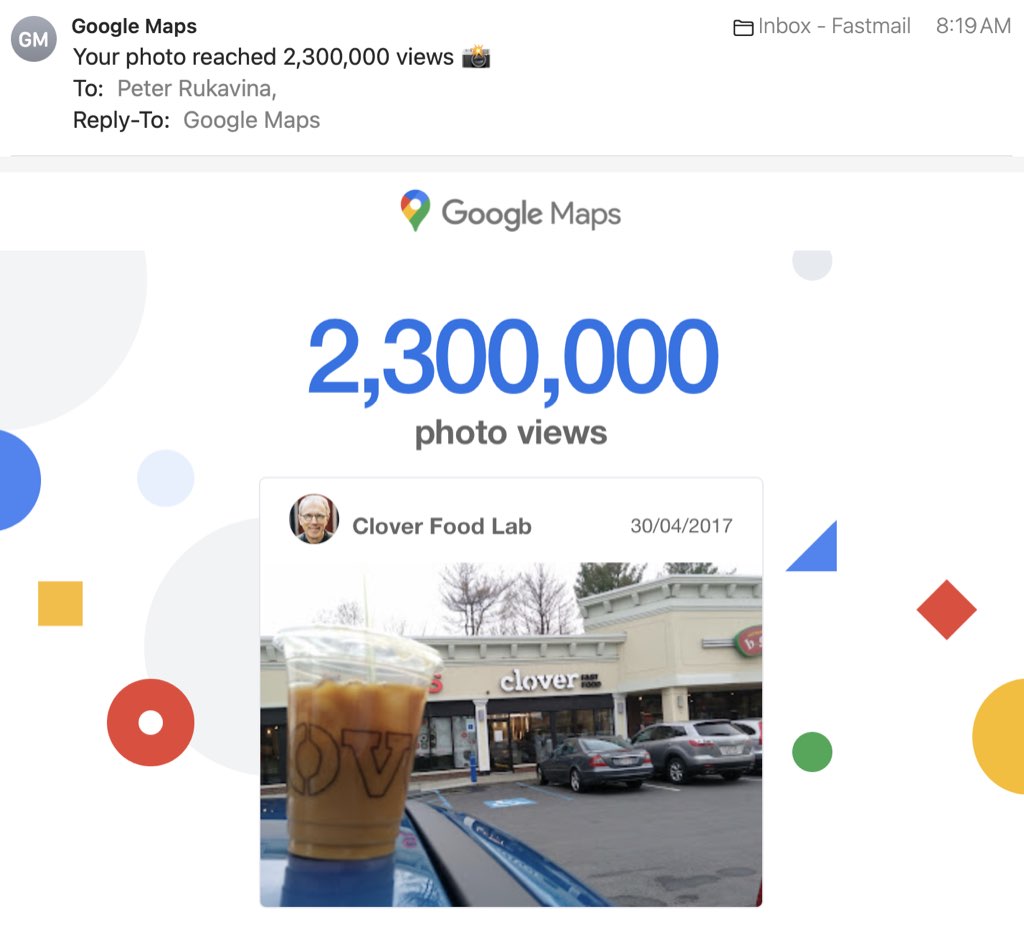
I was curious enough about this to try to ask Clover Food Labs about the photo — do they know that I’ve helped to promote them 2.3 million times? — and so I looked up their Contact Us page, and read:
Clover is headquartered in Boston, MA. We have no phone number, no landline phones in our company and are paper-free. While this might frustrate some, it helps us keep focused on what matters the most: making food you dream about. Our Locations page contains links to our daily menus – click on any menu item to learn more about it. Our restaurants are staffed with really friendly people who would love to get to know you and answer any questions you might have – face-to-face is our preferred mode of communication.
I love that.
And it reminds me of my own company voicemail:
Hello!
You’ve received the offices of Reinvented in Charlottetown, Prince Edward Island.
Our company is small. So small we don’t answer the phone. So small that if this phone number didn’t have sentimental value, we wouldn’t have a phone at all.
We’re not taking on new clients at present, and we never respond to commercial solicitations.
If you need to get in touch for other reasons, you’re welcome to leave a message here, or to send email to Peter at Rukavina.net — Peter at R U K A V I N A dot net.
Have a good day.
My brother used to have a colleague, let’s call him Phil, who, on the side, was running a business; apparently they’d be out at lunch together, this fellow’s cell phone would ring, and he’d answer “Hello, Phil Spencerton, International Sales…” He was trying to convey an image of grandeur far outstripping the reality of his one-person operation. I’m trying to do the opposite. So is Clover.
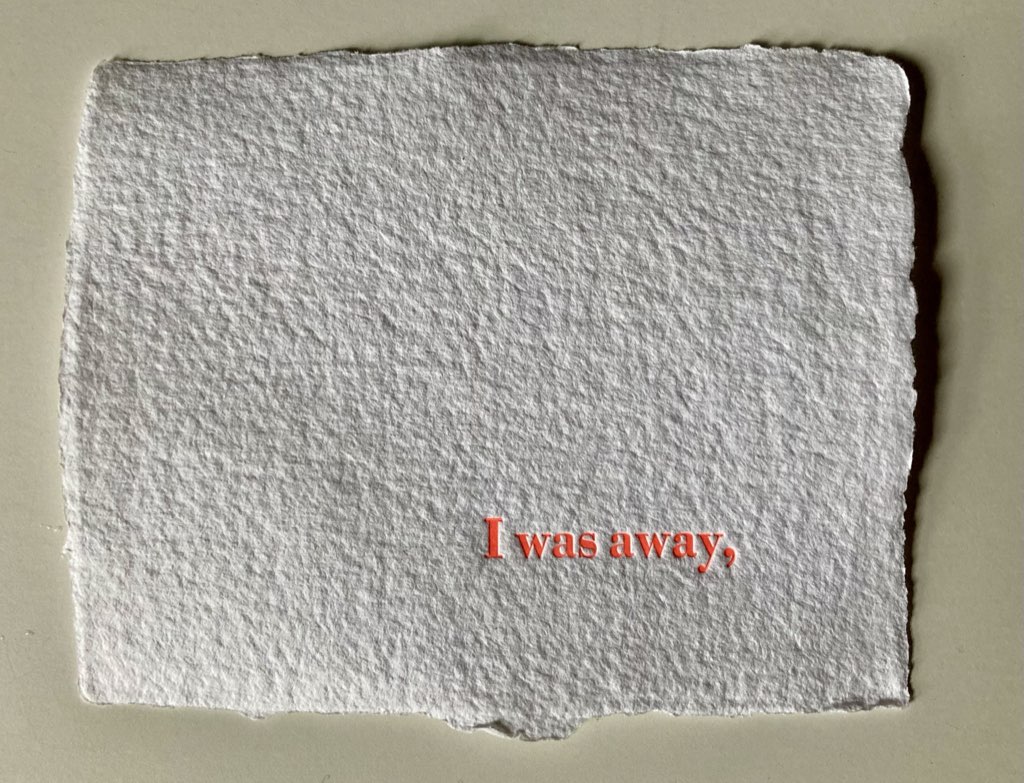
I was away,
Since when?
For the longest time I’ve been focused on 2014—the year everything went to hell. And surely crafting a usual story from “partner gets cancer while child enters teenage years” is eminently reasonable. Yes, I went away, gathered the horses, receded, armoured up.
Perhaps 2020, when Catherine died? Briefly untethered from the crush. But then the pandemic. We all went away for awhile.
Recently I’ve been revisiting my deeper history, trying to locate, in the forests of my 20s and 30s, the wellspring for prioritizing containment over aliveness. When did my younger self, shellshocked by challenging human relationships, decide that I should follow the emotional path of the armadillo?
All of those time scales are true.
Where was I?
Mark Rego writes, in a 2022 Psychology Today article, about a question clinicians can ask their patients:
The question applies to any disorder, and everyone immediately knows the answer: “Do you feel like yourself?” After working hard trying to figure out what may be wrong, or if the treatment has had a positive effect, I have asked this countless times. In each instance, both the patient and I knew where things stood.
If the answer is “no,” the follow-up question makes it easy for a patient to focus on what is bothering them. After a “no” answer, the follow-up question is, “If you are not fully yourself, what is missing that would get you back to feeling fully like you?” Because the person’s mindset has already been focused on the universal feeling of being oneself, it becomes easy to say why they are or are not fully at their usual baseline. Things like “I am still very tired,” “I still feel blue very often,” or “I feel better but still have no sex drive,” come immediately to the patient’s mind.
This is as good a description as any of where I was, “not myself.”
Rego continues:
Feeling like yourself is like having a jacket that fits perfectly. Only you can tell that every inch of that jacket conforms to your body, and you know as soon as you put it on. Feeling like yourself is similar in that every inch of internal being feels just right and normal.
I have not felt like I’ve been wearing that jacket for a long long time. Which is not to say that my person has been completely compromised, or even a little compromised, all of the time. But the jacket hasn’t been fitting perfectly for as long as I can remember, longer than death and longer than illness.
Faced with that knowledge, what to do?
Phase one was horseback riding, improv, opening myself up to love, lowering some protective shields, seeing vulnerability as an asset not a liability, starting to take maintenance of my physical body seriously.
Phase two involves a lot of reexamination of what my friend Ton calls “my usual story.” What are the tales I’ve long told about myself (to myself, to others), what are the ways I’ve come up with to describe my choices, the events as they played out, the ways I am. What are the habits that I’ve developed to allow me to live the way I’ve lived? Can I change them? What am I afraid of? Am I actually afraid of the things I say I’m afraid of?
I have help to do this, and it’s been challenging and revealing.
I feel energized.
And I feel like the jacket is starting to fit a lot better.
—
I was away, was printed on my Golding Jobber № 8 letterpress in 24 point Bodoni Bold with fluorescent pink ink on handmade Papeterie Saint-Armand paper. It’s the first piece I’ve set and printed in seven months, the longest I’ve been away from the press since I acquired it.
Two years ago last night I plucked myself up and went to my first improv class. Two years later I’m still going, Every week. It’s helped me so, so much in so, so many ways (including leading my heart to Lisa’s door). I owe a great debt to Laurie Murphy for all of this. And to my fellow players, and their yes&ing.
The 5th Wave coffee shop closed up its Queen Street location last week and is relocating to the spot on Great George Street formerly occupied by Coffee Plus. Stopping in at 5th Wave in the morning had become a morning habit on the way back from a cycle run to school: friendly staff, good coffee, laptop-friendly tables (with plenty of power outlets), clean washroom and a good soundtrack. I look forward to their resurrection closer to home.
We took a long walk on the beach a few weeks ago—leaping over a gully and not wanting to leap back the other way meant for a much longer walk that we’d planned—and we encountered scores of woolly bear caterpillars along the way. They were on the beach. On the road. On pathways. Everywhere.
I shot a video of one of them walking toward me on the beach.
Three observations this season:
- We turned the heat on in the house for the winter heating season on October 24, 2023; last year it was October 9, 2022 (compare to Ton).
- The first snow of the season was today, October 30, 2023 (in 2019 it was November 8).
- By lucky coincidence, today was also the day we got the winter tires put on both of our vehicles (repeating my success in 2021).
Here’s the weather warning that appeared on my phone this morning when I woke up:
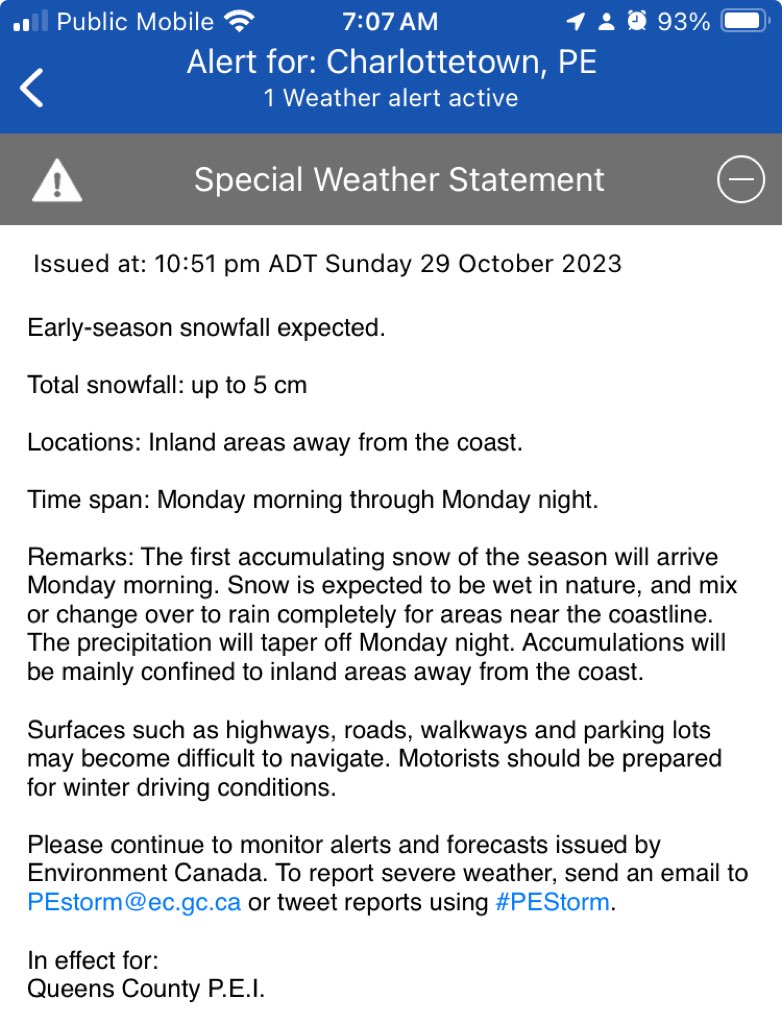
The chorus of Feeling of Home, new from The East Pointers:
Soul’s invisible, a bit unknown, a little tragic
On a lonely boat, where the longing never ends
Here, then we’re gone, we can’t do this alone
Carrying on, we’re still looking for that feeling of home
The “feeling of home” has been much on my mind, as Lisa and I reimagine together the blue-house-with-the-red-roof to be ours, an exercise in crafting a feeling as much as it is about organizing, painting and rearranging. It’s big, making space—physical, emotional, spiritual—in this house that has been home, in one guise, to me for so long (as long as I can remember living somewhere).
It is a welcoming embrace to Lisa and L., a finding of nooks where stillness can be found, a stanching of the uproot, all of that.
But it’s also about giving myself permission to find hope, future, joy, in a space that was, for so many years, a place of vigilance, expectation, unease, fear, grief.
It is welcoming myself home too.
We get tied in knots, and we try so hard
And it takes everything that we got
And it can breaks our hearts
 I am
I am